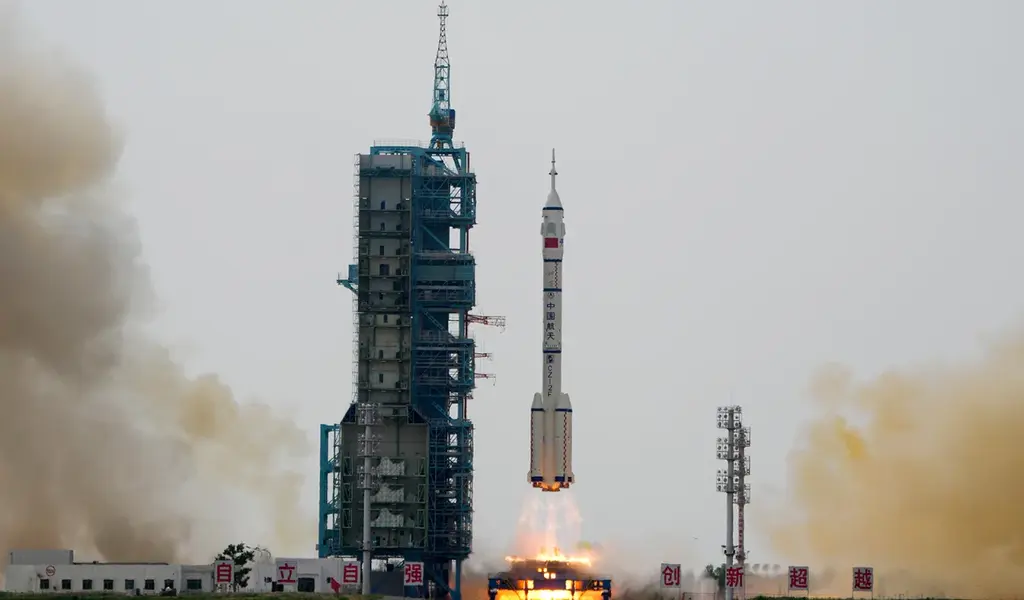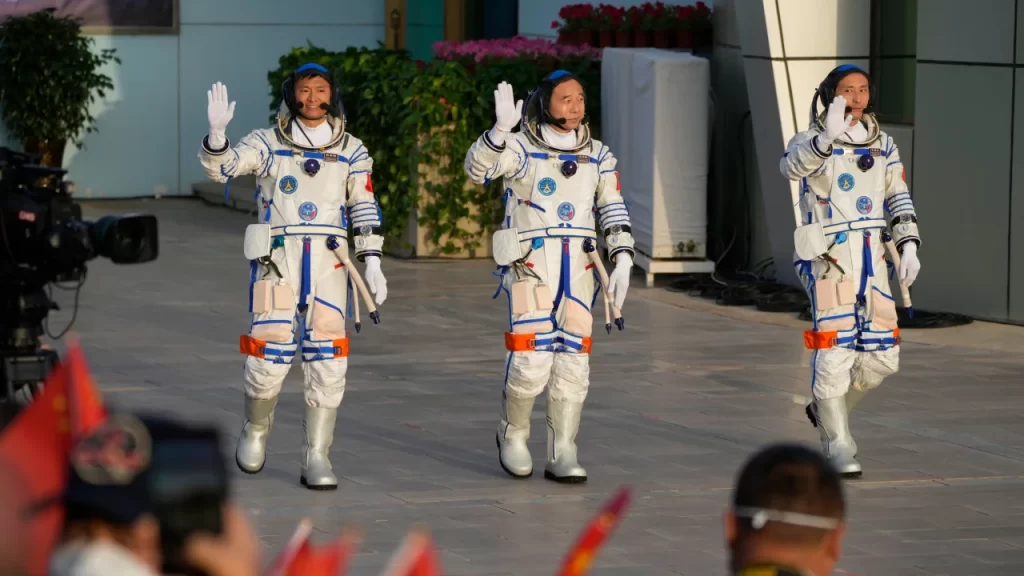News
China Says Will Land Astronauts on Moon Before 2030, Expand Space Station

(CTN News) – China launched its first civilian astronaut into orbit on Tuesday, launching the Shenzhou-16 mission to the International Space Station for its second in-orbit crew rotation, marking another milestone in the country’s ambitious space program.
On Tuesday, the three Shenzhou-16 astronauts launched from the Jiuquan Satellite Launch Centre in China’s Gansu province desert at 9:31 a.m., bound for the Tiangong space station circling Earth.
Jing Haipeng, Zhu Yangzhu, and Gui Haichao, the crew, will take over from the Shenzhou-15 astronauts, who have been inside China’s recently finished Tiangong space station since November, to begin their five-month stay.
It is China’s seventh manned space station expedition since 2021.
The Shenzhou-15 crew aboard the station was pictured live-streaming the launch of their replacement crew. According to state media, the two crews were due to meet at the station roughly 6.5 hours after the launch.
Gui, a professor at China’s prestigious aeronautics institution Beihang University who completed his postdoctoral studies in Canada, is the first Chinese citizen to fly in space.
All previous astronauts were members of China’s People’s Liberation Army. Gui will run payloads for space experiments, while Jing and Zhu will operate and manage the spacecraft and conduct technical testing, according to the China Manned Space Agency (CMSA) at a news conference presenting the crew on Monday.
China sends first civilian astronaut to space as Shenzhou-16 blasts off
Jing, the mission commander, is a space veteran who was part of China’s first astronaut crew in 1998 and has completed three manned flight missions. Zhu and Gui, born in 1986, are making their maiden space voyage.
Chinese internet media were curious about Gui’s selection because he was the first civilian astronaut and wore glasses in official photos, which astronauts don’t usually wear.
On Monday, several media sites responded to an online conversation about how a person with poor vision could be physically certified for a space mission.
State-run According to China Daily, former astronaut Yang Liwei, now a prominent official in China’s manned space program, there were varied criteria for different crew members as the mission division of labor got more specialized.
Several stories described Gui’s pre-mission training, which included desert field survival, sleep deprivation, centrifuge, and underwater operating skills drills.
NASA requires astronauts to have “distant and near visual acuity must be correctable to 20/20 in each eye”. However, “Glasses are acceptable.”
China has swiftly advanced its space capabilities, especially through the Tiangong space station, which completed its basic construction last year and is anticipated to function and house astronauts for at least a decade.
After the International Space Station retires in 2030, it may be the only scientific research facility in orbit. China has hosted international experiments to encourage international collaboration.
As part of its diplomacy, Beijing has been using its growing space power to offer collaborations and development possibilities to other nations.
According to official media, the space station’s T-shaped, three-module structure was finished last year, but it will be expanded, and its research capabilities will be expanded in the future years.
Tiangong’s core module entered orbit in 2021, launching the government’s 1992 space station project. Official media called it formally embarking on building one of humanity’s largest and most sophisticated space-based facilities.
The CMSA announced earlier this year that China would launch three space station application and development missions in 2023.
These include Tuesday’s launch, the cargo spacecraft Tianzhou-6 earlier this month, and the second crewed spaceship Shenzhou-17 later this year.
IN ITS MONDAY PRESS CONFERENCE, the CMSA reiterated China’s 2030 human lunar landing ambition.
Related CTN News:
What is Data Privacy? 5 Things You Need to Know About Data Privacy































